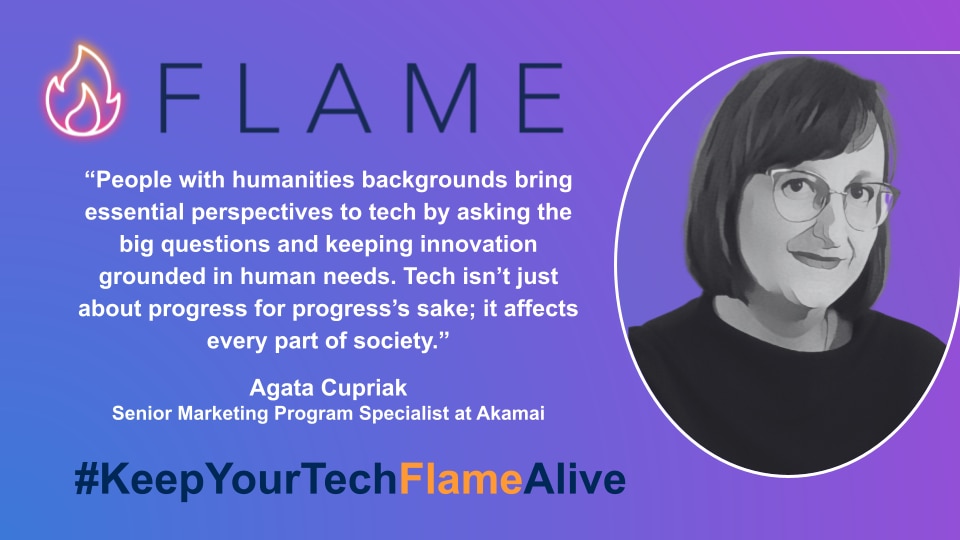The Problem with Perfection: Tech Confidence in Young Girls

At Akamai, we believe the future of tech is full of amazing opportunities. However, to ensure these opportunities are fulfilled, some things in the industry need to change. To enable these changes, we are committed to providing opportunities to anyone who wants to work in the field.
Acknowledging the gender gap in the industry is an important part of this. We don't believe that turning a blind eye creates an environment which encourages positive change. So, in this blog, we'll be continuing to talk about how we can encourage young people to pursue tech-related subjects. However, we'll be discussing the challenges girls can face when pursuing tech, and how we believe in supporting tech confidence.
Efforts are being made on a global scale to equalize the future of tech. Often, these efforts start right at the beginning, in childhood. For example, programs such as Black Girls Code and Code Now are designed for young people. Research shows that it's young people who are most adaptable and, thanks to a rise in technology, are becoming even more intelligent and capable.
At Akamai, we have been working to establish our place in this movement, by fostering a culture of inclusion. We have also developed extra-curricular outreach programs such as Akamai Girls in Code, enabling girls in India to access Computer Science education.
Reshma Saujani, of Girls Who Code, said: "I have seen girls tackle every single big problem, from cancer, to lead poisoning, to climate change, to homelessness, to bullying in schools. There is literally no problem that we can't solve." However, she also says that "girls have been socialized to aspire to perfection," but that coding requires imperfection. It is, by default, a trial and error practice. You cannot create perfect code without getting it wrong first. According to Muse, "because of the stereotype that women do worse in computer science, a lot of high-achieving women get a B on their first exam and think they're just not good enough. They feel behind already, so they quit."
A study conducted by Google found that "the most common word girls who aren't familiar with computer science associated with the field was 'boring.'" When talking to women who have pursued a career in Computer Science, research shows that they often credit "early exposure to programming as the greatest factor in their decision to become engineers." So, introducing girls to tech when they're young is a hugely important part of equalizing the gender balance.
Jessica Ledbetter, Akamai's Engineering Manager said, to encourage young girls to pursue tech, you need to "make it attainable." With the advancement of technology, there are so many options available to make programming easy to practice in the home. We mentioned options such as the Raspberry Pi and the Arduino in our previous blog. Roblox is another option which allows children to create games online, introducing them to programming while allowing them to play and have fun at the same time. Jessica said: "if a girl wants to create a game where she's a race car driver, she can. If you have an idea, you can create it." When tech is part of a child's daily experience, it will become an attainable option for their future.
Jessica talked about her own childhood, as a child of a single parent in a home which wasn't financially stable. "What I did have was a library card, so I could read what I wanted to read, explore what I wanted to explore. It gave me access to things I wouldn't normally have access to." Jessica initially majored in English, with a passion for writing and teaching. However, she discovered through a technical writing internship at NASA that she had an aptitude for applications and computers. She switched majors to Computer Science and pursued a career as a Web Developer. It was only when she finally discovered Computer Science that she realized tech could utilize her skill and passion for communicating just as well as English could. She simply had to learn to use computer language.
We also spoke to Sabine Sitterli, Akamai's Vice President of Network Infrastructure. She grew up in a tech and STEM household as her family was running their own business in the mechanical engineering industry. Within her home life, she was encouraged to pick whatever profession she dreamed of doing, as it was destined for her brother to take over the family business. She calls her mother - a Technical Engineering Designer - her most significant role model, saying she stood up for her beliefs within her profession, as a woman in the 1960's. Now, Sabine has said: "knowing that I am a role model gives me energy."
We asked both women about their experiences in the industry, and why they believe the gender gap exists. They spoke highly of their experiences within Akamai. However, both women referred to having felt like they couldn't fully embrace their gender at certain points in their careers. Jessica said she'd previously made her online handle gender neutral to eradicate assumptions about who she was, and what she was capable of. Sabine said that she relates to this idea that women are raised to be perfect. Both women support the idea that culture has a large part to play in encouraging girls to pursue tech and STEM fields. According to research, "experience and socialization matter."
The problem, of course, is not black and white. As such, there is no box we can tick to solve it. However, with multifaceted issues, there needs to be a multifaceted approach. All children are different. Encouraging them in their own way to understand and be confident in their own capabilities is key to them achieving their full potential. Teaching young girls to code, for example, doesn't have to require a computer. According to Code Like a Girl, "the same logical thinking required for coding is also required for knitting." So, economic privilege doesn't have to be a determining factor in allowing young people the chance to develop the skills needed for Computer Science.
At Akamai, we believe the key is in education, both at home and in the curriculum. We are determined to continue to provide opportunities for girls to access their natural abilities. We believe every female in Akamai is a role model. Where girls may encounter cultural and social barriers in pursuing tech interests, we are determined to continue to open doors. To truly change the future of tech a diverse workforce is essential, as without diversity of thinking tech cannot thrive. For a future that is as exciting as we know it can be, we need to raise our girls to be tech confident and make tech attainable.





